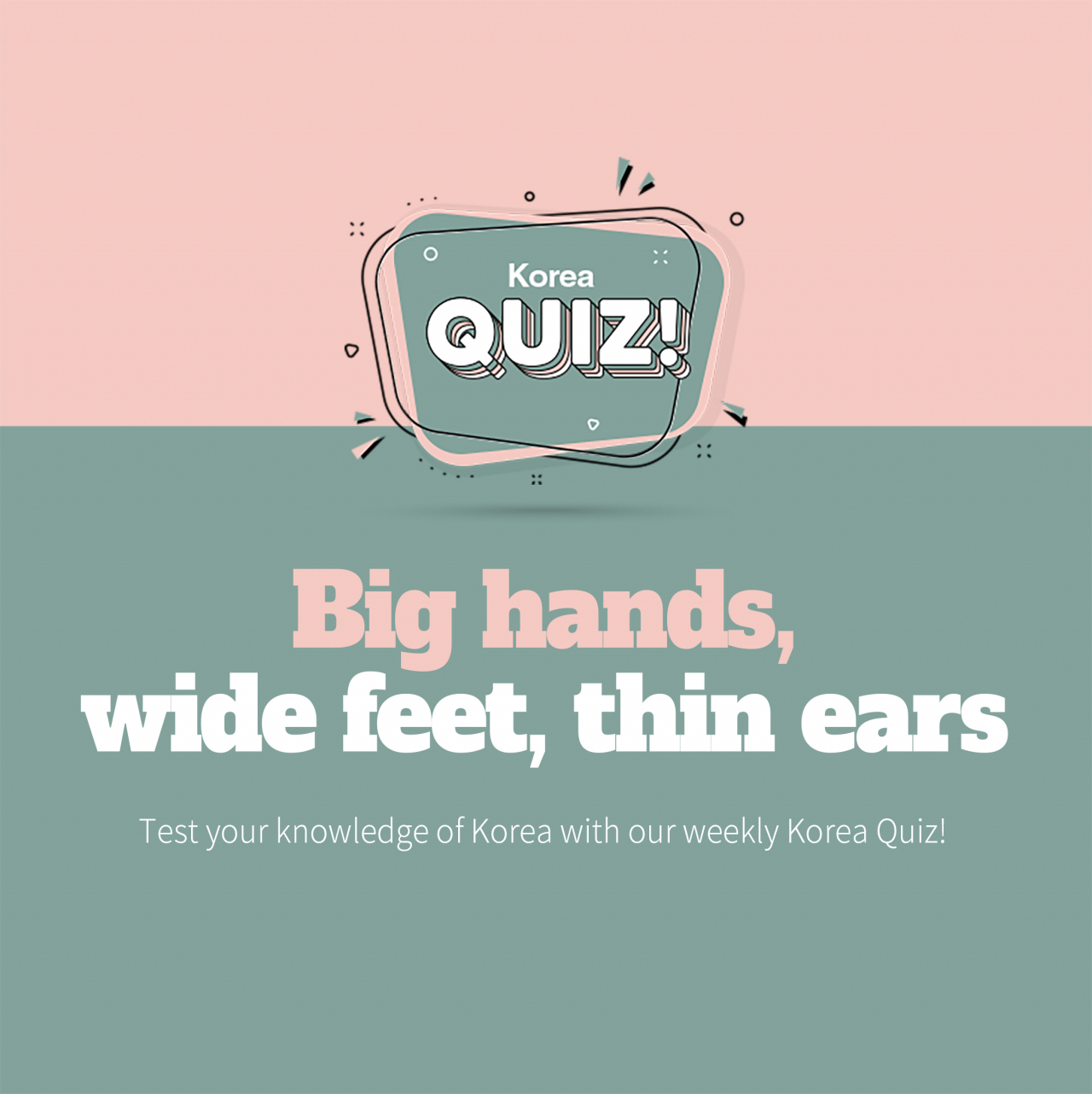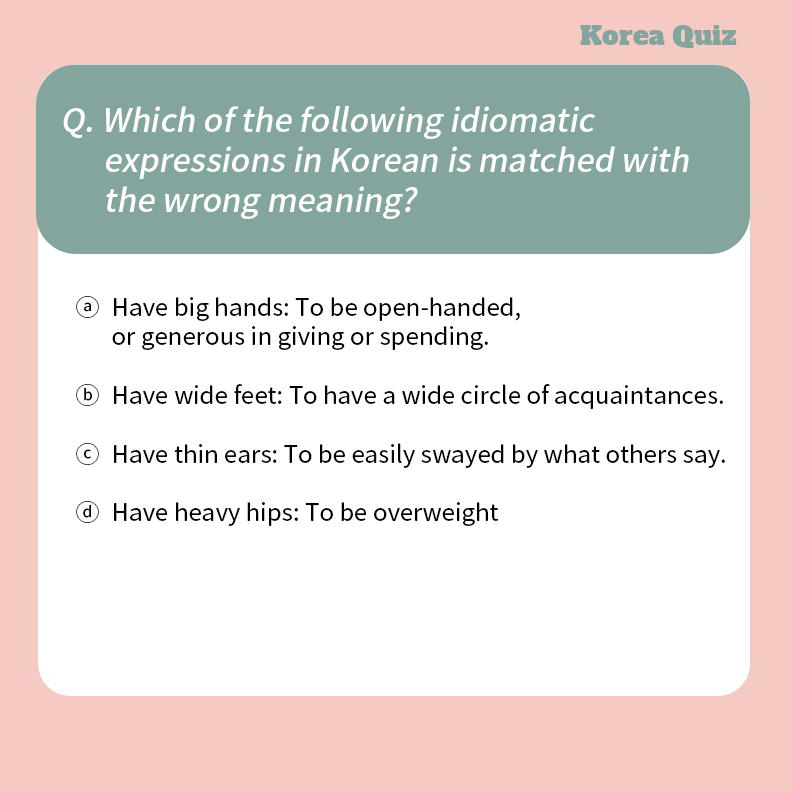Most Popular


Q. Which of the following idiomatic expressions in Korean is matched with the wrong meaning?
a. Have big hands: To be open-handed, or generous in giving or spending.
b. Have wide feet: To have a wide circle of acquaintances.
c. Have thin ears: To be easily swayed by what others say.
d: Have heavy hips: To be overweight
Find the answer at the bottom of the page.
Koreans use body parts in various idioms and everyday expressions.
When someone is described as having big hands, it means the person is generous in giving or spending, often on food. For example, a person with big hands may buy too much food and gives it out to friends or neighbors.
Other examples of reference to body parts in idiomatic expressions include having “wide feet,” which means the person knows a lot of people in various circles, and “having thin ears,” which means the person is gullible, takes other people’s words uncritically or is easily swayed by what others say.
You may be described as having “heavy hips,” but that does have nothing to do with your actual hip size. Rather it is to be taken as a compliment that you have a good concentration and can sit for long hours at the desk. The expression is mostly commonly used for students cramming for exam.
As for a reference to the mouth, Koreans say one’s mouth is cheap, when a person talks too much and can’t keep secrets. English speakers would say the person has a big mouth. “Big mouth” in Korean doesn’t mean anything other than its literal meaning.
Answer: D
-
Articles by Korea Herald
























![[Today’s K-pop] Treasure to publish magazine for debut anniversary](http://res.heraldm.com/phpwas/restmb_idxmake.php?idx=642&simg=/content/image/2024/07/26/20240726050551_0.jpg&u=)